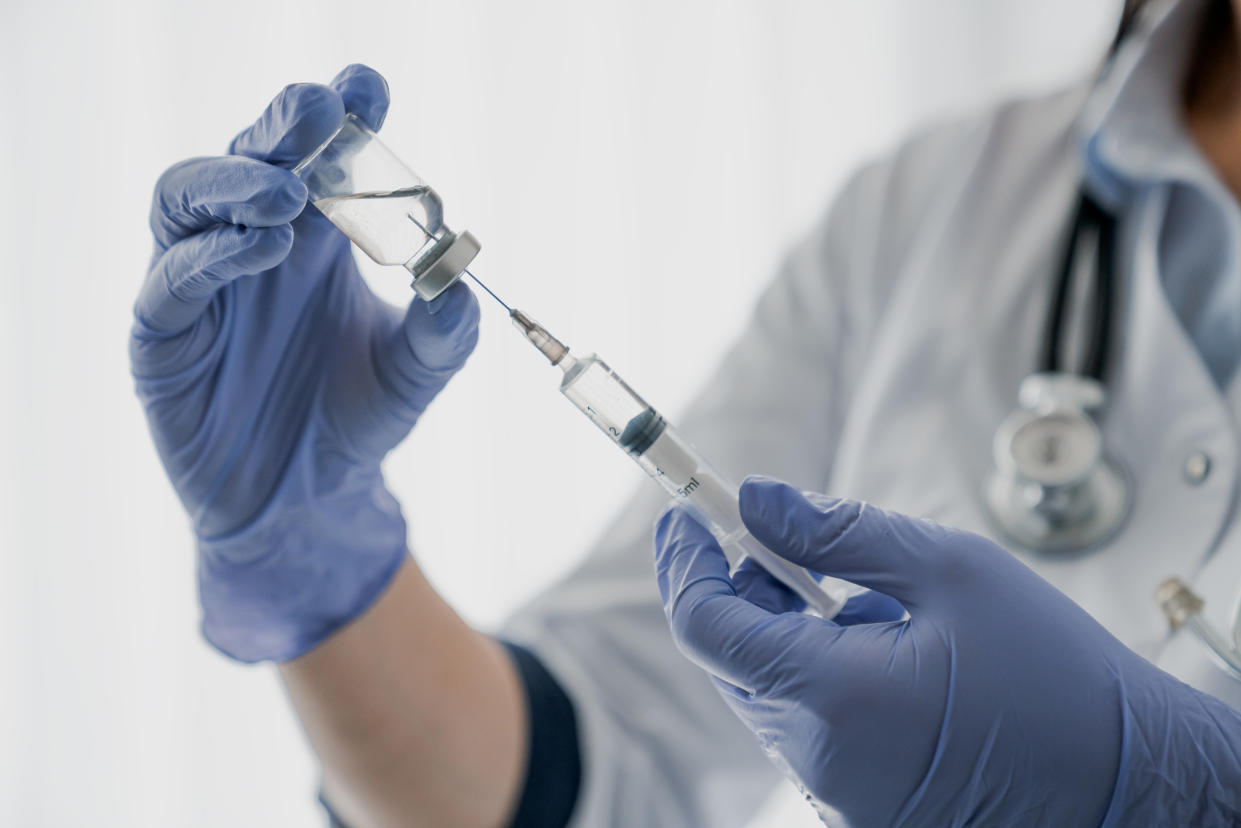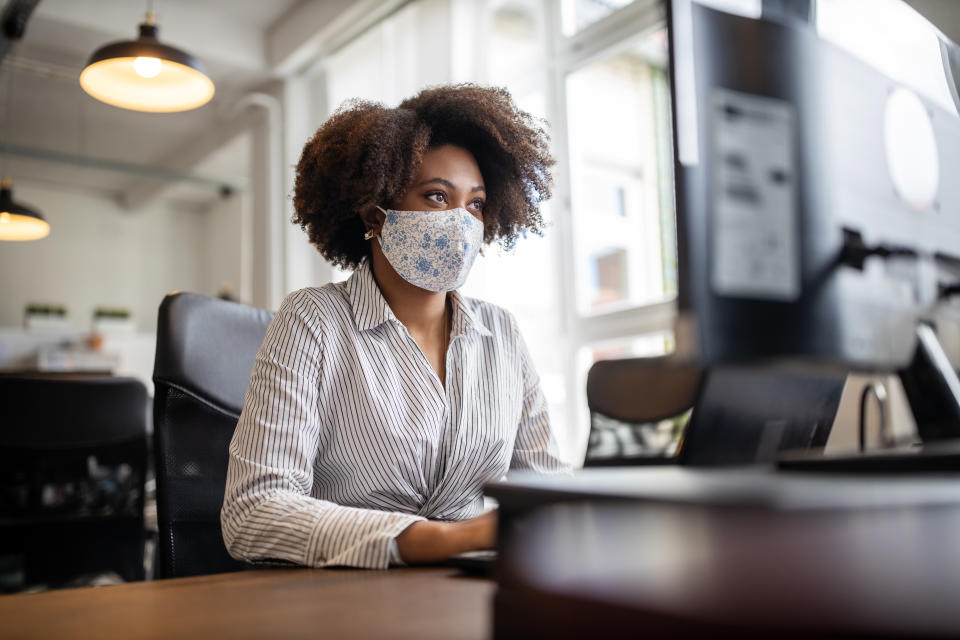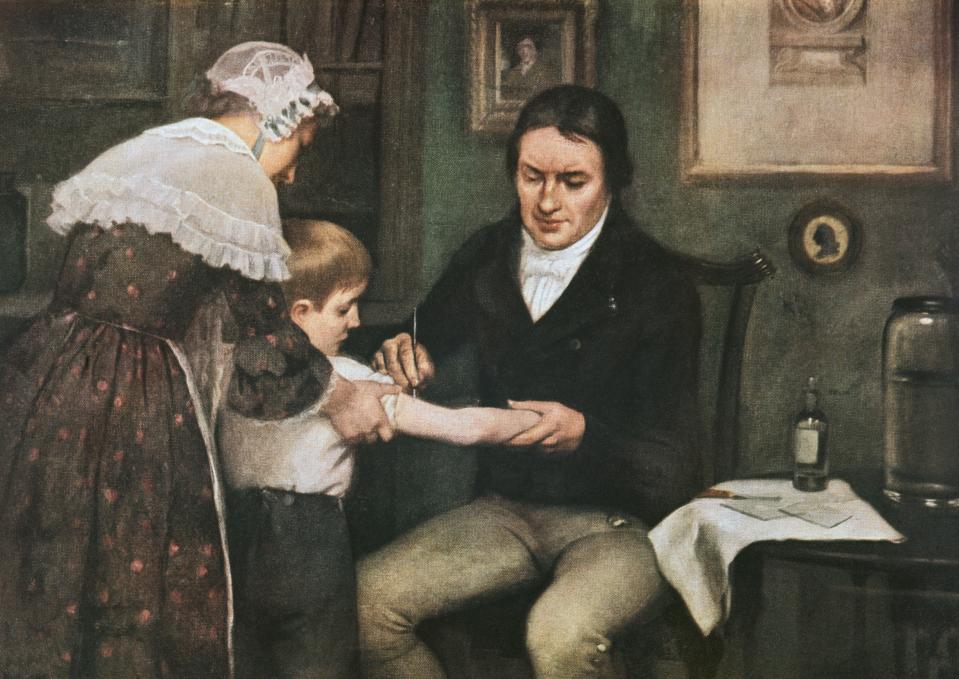Just 52% of Britons 'strongly agree' vaccines are safe, study finds

A global study into vaccine confidence has revealed some “hesitancy hotspots”.
Scientists from the London School of Hygiene & Tropical Medicine (LSHTM) analysed surveys and interviews from more than 284,000 adults across 149 countries between 2015 and 2019.
Results – published in the prestigious medical journal The Lancet – revealed confidence in vaccine safety “remains low” but varies across Europe, with less than one in five (19%) Lithuanians “strongly agreeing” immunisation is safe compared to two thirds (66%) in Finland in 2019.
In the UK, just 52% of Britons strongly agree vaccines are safe – up from 47% in May 2018. The proportion who “tend to agree” with jab safety fell, however, from 43% to 34%.
Read more: Multiple concerns over Russian coronavirus vaccine studies
Confidence is faltering in other parts of the world, with nearly one in five (17%) in Azerbaijan “strongly disagreeing” vaccines are safe in 2019, compared to just 2% four years earlier – “mirroring trends in political instability and religious extremism”.
Amid the coronavirus pandemic, an effective jab has often been hailed a route back to life as we once knew it. The LSHTM scientists stressed “identifying countries with declining confidence” will help guide “where we need to build trust to optimise uptake”.
Vaccines are rigorously tested for safety, with any complications being “exceedingly rare”.

‘Rapid and global spread of misinformation’
The invention of vaccines as we know them took place in the 18th century.
Edward Jenner, “the father of immunology”, noticed milkmaids who overcame the mild cowpox virus did not develop smallpox – which killed around 30% of those infected.
Jenner inserted pus from a cowpox pustule into an eight-year-old boy’s arm, leaving him immune to smallpox.
Fast forward more than 200 years, vaccines prevented at least 10 million deaths worldwide between 2010 and 2015 alone.
Despite the enormous success of immunisation, public mistrust is a growing issue, with the World Health Organization (WHO) declaring vaccine hesitancy one of the top 10 threats to global health in 2019.
Refusals or even delays to vaccinations contribute to outbreaks of preventable diseases like measles, polio and meningitis, according to the WHO.
Read more: Two in five with lung condition will shield until coronavirus vaccine
“One of the main threats to the resilience of vaccination programmes globally is the rapid and global spread of misinformation,” said Professor Heidi Larson, co-lead author of the LSHTM study.
“When there is a large drop in vaccination coverage, it is often because there's an unproven vaccine safety scare seeding doubt and distrust.
“Sometimes there is a genuine small risk that gets rapidly spread and amplified to appear to be a much larger risk.
“There are also cases where vaccine debates have been purposefully polarised, exploiting the doubting public and system weaknesses for political purposes, while waning vaccine confidence in other places may be influenced by a general distrust in government and scientific elites.
“It is vital with new and emerging disease threats such as the COVID-19 [the disease caused by the coronavirus] pandemic, that we regularly monitor public attitudes to quickly identify countries and groups with declining confidence, so we can help guide where we need to build trust to optimise uptake of new life-saving vaccines.”

Although immunisation coverage is reported across the world, data on vaccine confidence that could be compared between nations was not recently available.
To plug this gap, the LSHTM scientists combined information from nearly 250,000 previously published surveys with an additional 50,000 interviews carried out in 2019.
Models estimated trends in public attitudes to the safety and efficacy of vaccines, as well as the importance of immunising children.
The results revealed confidence in vaccine safety “remains low” in Europe but appears to be increasing in several countries, including Finland, France, Italy, Ireland and the UK.
In France, which has previously been linked to anti-vaxx sentiments, the number of adults strongly agreeing jabs are safe rose from 22% in November 2018 to 30% in December 2019.
In the UK, this increased from 47% in May 2018 to 52% in November 2019.
Read more: Infection of volunteers for coronavirus vaccine is 'ethical'
Among the Polish, however, strong vaccine safety confidence dipped from 64% in November 2018 to 53% in December 2019, “reflecting the growing impact of a highly organised local anti-vaccine movement”, according to the scientists.
Six countries in particular have experienced “substantial increases in people strongly disagreeing vaccines are safe (i.e. not just being less convinced, but actively against vaccines)”, they wrote.
As well as Azerbaijan, these were made up of Afghanistan, Indonesia, Nigeria, Pakistan and Serbia.
This “worrying trend” mirrors “political instability and religious extremism”, according to the LSHTM scientists.
Safety concerns may not block parents from having their children vaccinated, however.
Nearly all the respondents in Iraq (95%), Liberia (93%) and Senegal (92%) agreed it is important for children to have jabs.
“Our findings suggest people do not necessarily dismiss the importance of vaccinating their children even if they have doubts about how safe vaccines are,” said co-lead author Clarissa Simas.
“The public seem to generally understand the value of vaccines, but the scientific and public health community needs to do much better at building public trust in the safety of vaccination, particularly with the hope of a COVID-19 vaccine.”
‘With every crisis comes opportunity’
The overall confidence in vaccines—taking into account safety, effectiveness and importance—fell in Indonesia, the Philippines, Pakistan and South Korea between November 2015 and December 2019, the results show.
In the Philippines, risks around the dengue jab Dengvaxia “caused one of the largest falls in vaccine confidence and subsequently affected uptake of routine vaccines”.
Dengvaxia’s manufacturer Sanofi announced in 2017 the jab posed a risk to individuals who had not been exposed to the dengue virus, “prompting outrage and panic across the population where nearly 850,000 children had been given the new vaccine the previous year”.
Writing in a linked Lancet comment, Dr Daniel Salmon from Johns Hopkins University stressed “situations such as Dengvaxia” – where a vaccine was linked to complications – are “exceedingly rare”.
“Unlike this example, most vaccine safety scares are not supported by scientific evidence,” he added.
In South Korea, the LSHTM scientists partially pointed the finger at communities like ANAKI – translates as “raising children without medication”.
In Muslin nations like Indonesia, leaders have questioned the safety of the measles, mumps, and rubella (MMR) vaccine.
They also issued a religious ruling called a fatwa that claimed the MMR jab was haram (forbidden) and contained ingredients derived from pigs.
The scientists found an association between minority religious groups and lower vaccine uptake.
A stronger link was found, however, between being male or less educated and not having jabs.
Trusting a healthcare worker for medical advice over family or friends was associated with increased vaccine uptake.
Dr Salmon added: “Vaccines have a remarkable safety record, based on rigorous processes of phased randomised controlled trials and on licensure requirements, which have ensured that the benefits of vaccination outweigh the risks.”
He concluded global investment into vaccine safety and “communication infrastructure” is required.
“Without substantial global investment in active vaccine safety surveillance, continuous monitoring of public perceptions, and development of rapid and flexible communication strategies, there is a risk of [coronavirus] vaccines never reaching their potential due to a continued inability to quickly and effectively respond to public vaccine safety concerns, real or otherwise,” wrote Dr Salmon.
“With every crisis comes opportunity; it should not be ignored.”


